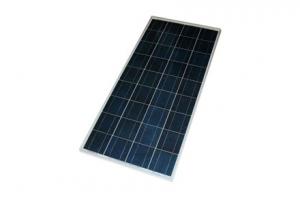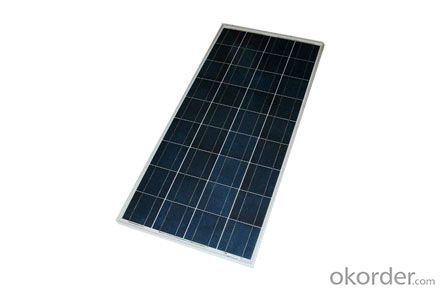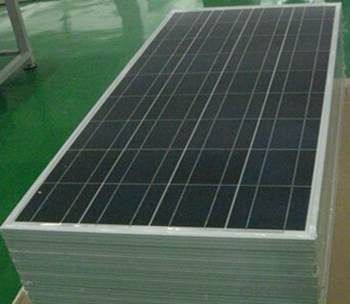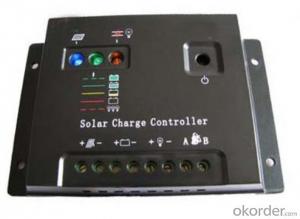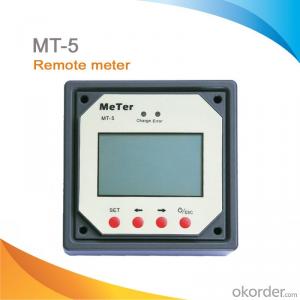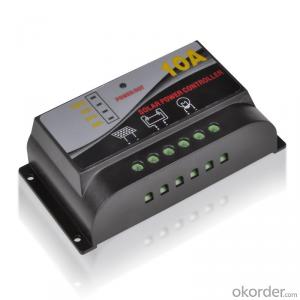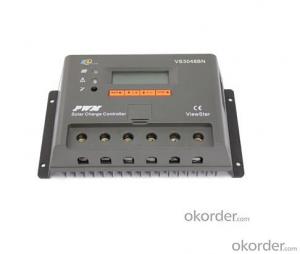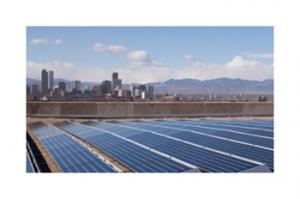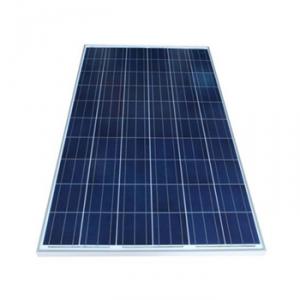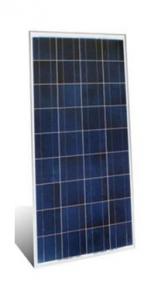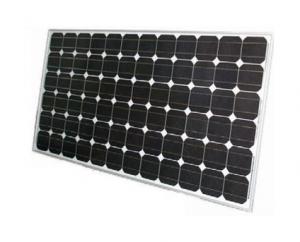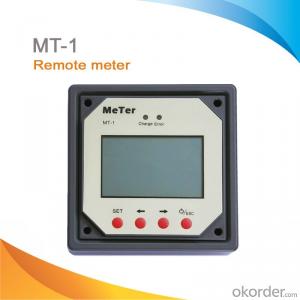Solar Controllers Ocala Fl - Poly-Crystalline 140W Solar Modules 156*156 Module
- Loading Port:
- China Main Port
- Payment Terms:
- TT or LC
- Min Order Qty:
- -
- Supply Capability:
- -
OKorder Service Pledge
OKorder Financial Service
You Might Also Like
PV systems use the most abundant energy source on the planet, solar radiation, to generate electricity. They are silent, consume no fuel and generate no pollution. They also contribute to the reduction of greenhouse gas emissions; a 2kW PV system on a house will prevent the emission of about 40 tonnes of CO2 during its projected 30 year lifetime. Furthermore, the use of PV will reduce your electricity bills and exposure to fluctuating and steadily rising electricity prices.
Customers benefit from our progressive system innovations. Around the world, we meet our customers' desire for the greatest possible reliability, long-term performance and aesthetic integration. No matter which kind of roof – we always have the right solution.
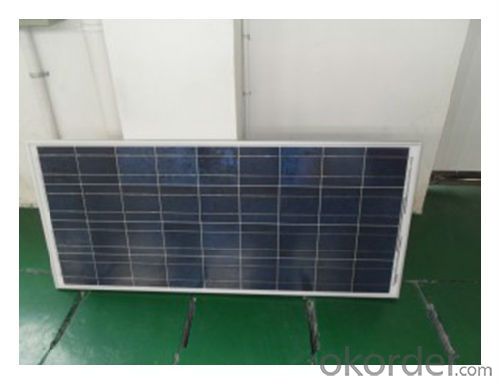
Max-power (W) | 140 |
Max-Power Voltage (V) | 18.3 |
Max-Power Current (A) | 7.65 |
Open-Circuit Voltage (V) | 21.95 |
Short-Circuit Current (A) | 8.25 |
Mechanical Characteristics
Cable type, Diameter and Length | 4mm2, TUV certified, 1000mm |
Type of Connector | Compatible with MC4 plug |
Arrangement of cells | 4*9 |
Cell Size | 156*156 |
Dimension | 1482*676*40 |
Weight | 12Kg |
Glass, Type and Thickness | High Transmission, Low Iron, Tempered Glass 3.2mm |
Features
Guaranteed positive tolerance 0/+5w ensures power output reliability
Strong aluminum frames module can bear snow loads up to 5400Pa and wind loads up to 2400Pa.
Excellent performance under low light environments (mornings evenings and cloudy days)
12 years for product defects in materials and workmanship and 25 years for 80% of warranted minimum power.
Certifications and standards: IEC 61215.
Manufactured according to International Quality and Environment Management System (ISO9001, ISO14100).
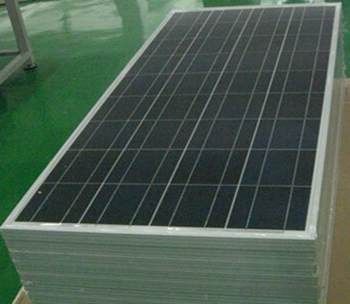
FAQ
Q: Do you have any MOQ limit?
Our MOQ is 200 pieces.
Q: How long is the warranty period for the solar modules?
15 years 90% of its nominal power rating.
25 years 80% of its nominal power rating
Q: What kind of loads can I run on PV?
With a correctly designed PV system you can power almost any electrical load. However, as the load size increases the expense also increases. Loads like hot water heaters, air conditioners, room heaters and electric stoves should be avoided. The added cost of trying to power loads like these is very cost prohibitive. If these loads have to be powered it will be a lot less expensive to change the appliance to use an alternative fuel type like propane.
Q: When do I need a charge controller and why?
The safest way to figure out if you need a charge controller is to take Battery Amp Hour Capacity and divide this by the Solar Panel max. power amp rating. If the quotient is above 200, you don't need a controller. If the number is less than 200 than you need a controller.
- Q: Can a solar controller be used with a solar electric vehicle charging station?
- Yes, a solar controller can be used with a solar electric vehicle charging station. A solar controller is responsible for regulating the flow of electricity from the solar panels to the battery or charging station. By using a solar controller, the charging station can effectively manage and optimize the power generated from the solar panels, ensuring efficient charging of electric vehicles.
- Q: Are there any disadvantages of using a solar controller?
- Using a solar controller has its drawbacks. Firstly, the cost of purchasing and installing a solar controller can be quite high. This can increase the overall expenses of setting up a solar power system, which might discourage certain individuals or businesses. Secondly, operating and maintaining solar controllers can be complex. They require proper programming and configuration to ensure optimal performance, as well as regular maintenance to keep them running efficiently. This may necessitate technical expertise or the hiring of professionals, resulting in additional costs. Furthermore, solar controllers may have limited compatibility with specific solar panels or battery systems. It is crucial to ensure that the solar controller is compatible with the particular components of the solar power system. Otherwise, it may malfunction or even cause damage. Lastly, solar controllers rely on sunlight for power generation. Therefore, they may not be as effective in areas with limited sunlight or during cloudy days. This can lead to decreased energy production and may require alternative power sources or energy storage solutions. In conclusion, while solar controllers offer various advantages in terms of regulating and optimizing solar power systems, they also come with certain disadvantages that should be taken into account before making a decision.
- Q: Can a solar controller be used with solar panels that are connected to a solar water pump?
- Yes, a solar controller can be used with solar panels that are connected to a solar water pump. The purpose of a solar controller is to regulate the flow of electricity from the solar panels to the connected device, in this case, the solar water pump. It ensures that the solar panels operate at their maximum efficiency and protects the pump from overcharging or damage.
- Q: What is the maximum temperature a solar controller can withstand?
- The maximum temperature a solar controller can typically withstand varies depending on the specific model and manufacturer. However, most high-quality solar controllers are designed to withstand temperatures up to 60-70 degrees Celsius (140-158 degrees Fahrenheit).
- Q: Can a solar controller be used with different types of solar panel mounting systems?
- Yes, a solar controller can be used with different types of solar panel mounting systems. The solar controller's main function is to regulate and optimize the charging of the batteries from the solar panels. It does not depend on the specific mounting system used for the solar panels. As long as the solar panels are connected to the solar controller, it can effectively manage the charging process regardless of the mounting system in place.
- Q: What is the role of temperature compensation in a solar controller?
- The role of temperature compensation in a solar controller is to adjust the charging parameters, such as voltage and current, based on the temperature of the battery. This helps to optimize the charging process and prevent overcharging or undercharging, which can reduce the lifespan of the battery. Temperature compensation ensures that the battery receives the appropriate charging voltage and current, regardless of the temperature fluctuations, leading to improved efficiency and longevity of the solar system.
- Q: Can a solar controller be used with a solar-powered airport or seaport?
- Yes, a solar controller can be used with a solar-powered airport or seaport. A solar controller regulates the flow of energy from solar panels to the batteries or electrical grid, ensuring optimal performance and preventing damage. It is an essential component in managing and maximizing the efficiency of solar power systems, making it compatible and beneficial for use in solar-powered airports or seaports.
- Q: How do I calculate the maximum load output current for a solar controller in a grid-tied system?
- To calculate the maximum load output current for a solar controller in a grid-tied system, you need to consider the specifications provided by the manufacturer. Look for the maximum load capacity or output current rating mentioned in the product datasheet or manual. This value represents the highest current that can be safely drawn from the solar controller's load output. It is crucial to adhere to this limit to prevent any damage to the controller or the connected devices.
- Q: What is the maximum number of system data logs supported by a solar controller?
- The maximum number of system data logs supported by a solar controller can vary depending on the specific model and brand. It is best to consult the product specifications or contact the manufacturer to determine the exact number of logs supported.
- Q: Can a solar controller be used with a solar-powered data center?
- Yes, a solar controller can be used with a solar-powered data center. A solar controller regulates the flow of electricity from the solar panels to the batteries, ensuring optimal charging and preventing overcharging. This is essential for maintaining a stable power supply in a solar-powered data center, as it helps regulate and manage the energy generated by the solar panels.
Send your message to us
Solar Controllers Ocala Fl - Poly-Crystalline 140W Solar Modules 156*156 Module
- Loading Port:
- China Main Port
- Payment Terms:
- TT or LC
- Min Order Qty:
- -
- Supply Capability:
- -
OKorder Service Pledge
OKorder Financial Service
Similar products
Hot products
Hot Searches
Related keywords
